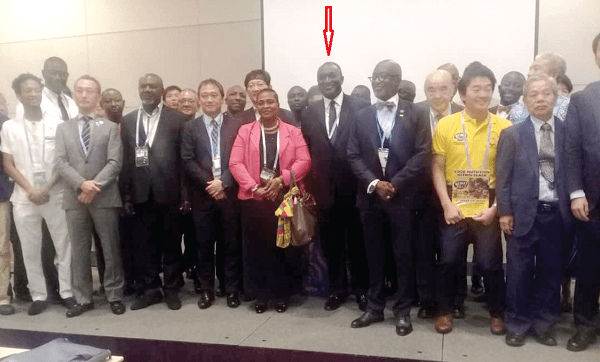
Japanese firms asked to invest in Ghana
The Minister of Trade and Industry, Mr Alan Kyerematen, has invited Japanese firms to invest in the government’s One district, One factory (1D1F) initiative, especially, in the agro processing sector.
He said investing in the country's flagship industrial policy came with some of the most attractive incentives any investor could get in Africa.
Mr Kyerematen threw the invitation to the Japanese investor community at the Ghana Investment Seminar which was a side event of the 7th Tokyo International Conference on African Development (TICAD 7) in Yokohama on Friday [August 30, 2019].
The well-attended seminar was co-organised by the TICAD 7 Secretariat, Ghana's Ministry of Finance, the Ministry of Trade and Industry, and the Ghana Investment Promotion Centre (GIPC), with support from Japan's Ministry of Foreign Affairs, the Ministry of Economy, Trade and Industry, the Japan External Trade Organisation (JETRO) and the Japan Institute for Overseas Development.
Entry point
Mr Kyerematen said the government was supporting the private sector to establish at least one major factory in all districts in Ghana.
"So for Japanese investors who are interested in the agro industry, this is an entry point for you," he added.
The minister said there were different types of agricultural commodities that investors could add value to, and assured them of the government’s preparedness to provide attractive incentives to facilitate their businesses.
Mr Kyerematen said there were two questions investors sought answers to in deciding an investment destination.
First, he said an investor would want to know whether there were opportunities to make money from; and secondly, whether the investment environment would be competitive and secure.
In both situations, he said Ghana towered high above its peers in West Africa.
"We have a very aggressive programme for industrial transformation, as we learn from the experiences of Japan and other Asian Tigers, as well as Europe and North America," he added.
Areas of focus
Mr Kyerematen said the government had identified 10 main areas where it was focusing on in its industrial drive.
They include petrochemical, iron and steel, bauxite and aluminium, automobile, pharmaceutical and industrial salt.
The rest are industrial starch, vegetable oil and fats, particularly oil palm, and garment and textiles.
Providing some details, the minister said Ghana had significant reserves of oil and gas "but we do not want to follow the footsteps of some of our sister countries that have exported all their oil and gas and are still looking for aid from other countries."
Rather, he said Ghana wanted to use its oil and gas resources to develop the petrochemical industry to add value to it for the country and investors to maximise the benefits from the natural resources.
The minister also said Ghana had significant resources of iron ore and manganese.
Touching on the automobile industry, he said the prospects were huge.
"This is what I started talking about eight months ago and people thought I was being too ambitious. Just within a matter of six months, we have a number of the major auto companies that have taken a decision to invest in Ghana," he said, citing Toyota, Nissan, Suzuki, Volkswagen and Renault as some of those companies.
Mr Kyerematen said the pharmaceutical industry had a $5 billion market in the ECOWAS region and pointed out that Ghana could become a gateway for the production of pharmaceutical products in the sub region.
On industrial salt, he said, the country had an annual capacity of about three million tonnes that could be mined.
The minister also said the Africa Continental Free Trade Agreement (AfCFTA) of which Ghana would be hosting the headquarters, would provide fertile grounds for investors to reap maximum benefits.
GIPC boss
Making his submission, part of which was backed by a video footage, the Chief Executive Officer of the GIPC, Mr Yofi Grant, said the country was giving premium to partnerships in growing the local economy.
He said the GIPC was ready to support investors to set up businesses in the country.
Other speakers included the Managing Director of the GCB Bank, Mr Ray Sowah, and the CEO of the Consolidated Bank, Mr Daniel Wilson Addo.
There were also testimonies by some investors in Ghana.
